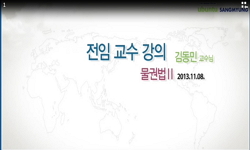Institute of Korean Cultural Studies, Yeungnam University) In the history of Chinese thought, the ideology of rule by virtue is retroactive to the ‘classical era(上古)’. Virtue(德) was useful in strengthening the legitimacy of the royal regime ...
http://chineseinput.net/에서 pinyin(병음)방식으로 중국어를 변환할 수 있습니다.
변환된 중국어를 복사하여 사용하시면 됩니다.
- 中文 을 입력하시려면 zhongwen을 입력하시고 space를누르시면됩니다.
- 北京 을 입력하시려면 beijing을 입력하시고 space를 누르시면 됩니다.

정치적 도덕에서 도덕적 정치로: 諸子百家忠·信개념의 이해와 변용 = From political morality to moral politics - Focusing on the understanding and transformation of the concept of loyalty(忠) and trust(信) of the Hundred Schools
한글로보기https://www.riss.kr/link?id=A108997119
- 저자
- 발행기관
- 학술지명
- 권호사항
-
발행연도
2024
-
작성언어
-
-
주제어
諸子百家 ; 德治 ; 忠 ; 信 ; Hundred Schools ; Rules by virtue ; Loyalty ; Trust
-
KDC
100
-
등재정보
KCI등재
-
자료형태
학술저널
-
수록면
257-300(44쪽)
- 제공처
-
0
상세조회 -
0
다운로드
부가정보
다국어 초록 (Multilingual Abstract)
Institute of Korean Cultural Studies, Yeungnam University) In the history of Chinese thought, the ideology of rule by virtue is retroactive to the ‘classical era(上古)’. Virtue(德) was useful in strengthening the legitimacy of the royal regime from the morality of the politician, and various concepts that mean virtual in existing ancient literature are inherently closely linked to political demand. This paper argues that, the Hundred Schools during the Spring and Autumn Warring States period, when they in the process of presenting several political blueprints based on the ideology of virtue in the classical era(上古)~middle of the Xizhou (西周) period, caused various divisions, developments, and expansion in the meaning of concepts related to individual morality. In particular, as almost all the concept of loyalty(忠) and trust(信) was deeply dealt with by the refinement of the politician, it is delicately penetrated into each thinker's point of view in this huge flow rather than other concepts.
동일학술지(권/호) 다른 논문
-
권근 『周易淺見錄』의 군신공치론연구 - 安民을 위한 조화로운 상태의 추구 -
- 한국공자학회
- 홍린 ( Lyn Hong )
- 2024
- KCI등재
-
군주의 관점에서 본 군신공치 -정조의 탕평과 의리를 중심으로-
- 한국공자학회
- 배제성 ( Bae Je Seong )
- 2024
- KCI등재
-
- 한국공자학회
- 강경현 ( Kang Kyung Hyun )
- 2024
- KCI등재
-
『性自命出』을 통해 본 전국시대 유가 예악관 - 樂記와 비교를 중심으로
- 한국공자학회
- 차민경 ( Cha Min-kyung )
- 2024
- KCI등재




 KISS
KISS




